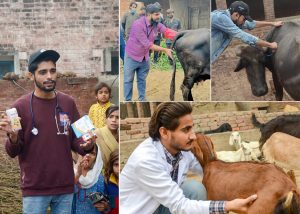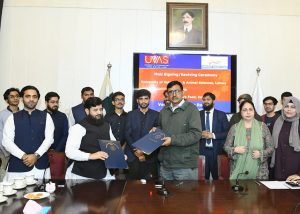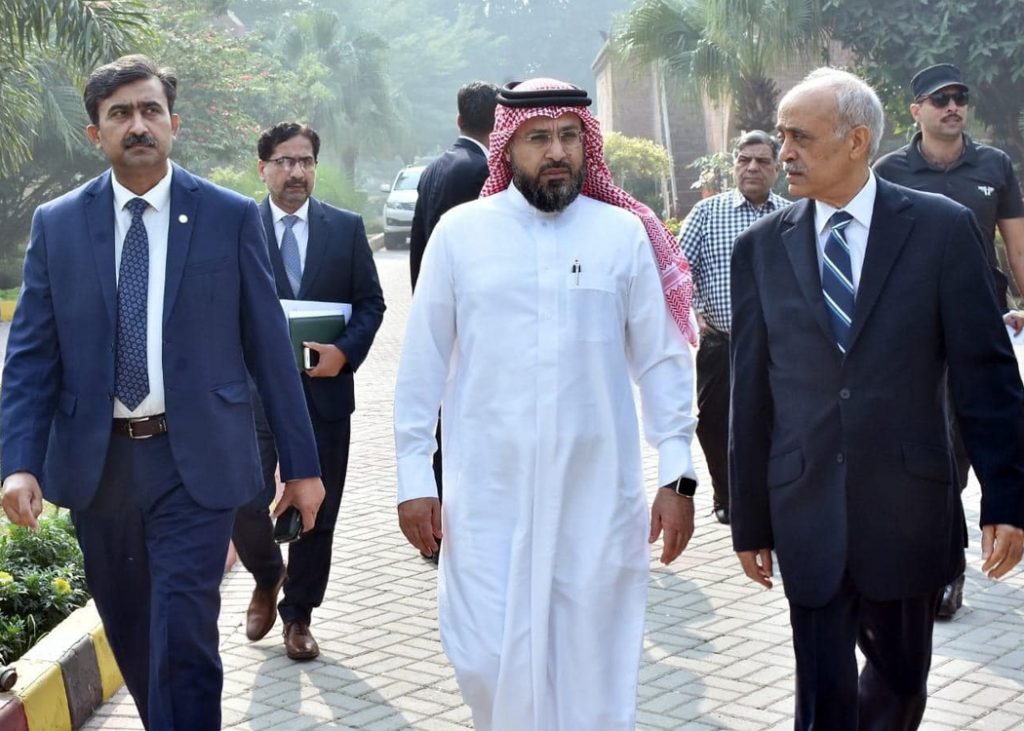
AVN Correspondent
FAISALABAD: The Islamic Organization for Food Security (IOFS) Executive Board Chairman and Caretaker Director-General Dr Masoud J Al-Marri has underscored the critical importance of food security and sustainable agriculture in the face of climate change and a growing global population, calling for coordinated efforts to combat hunger and promote agricultural development.
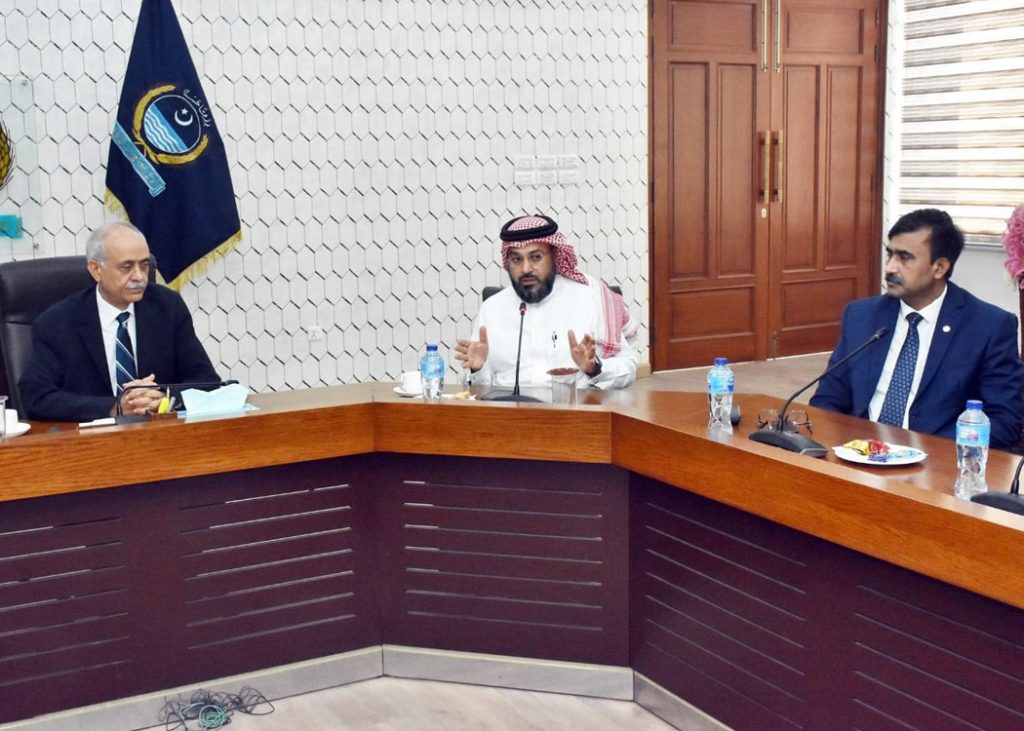
Dr Al-Marri, accompanied by IOFS Director Program Prof Dr Zulfiqar Ali, recently visited the University of Agriculture Faisalabad (UAF), where they met with UAF Vice Chancellor Prof Dr Iqrar Ahmad Khan, deans, and directors at the syndicate room.
Highlighting the challenge of heavy food imports for OIC countries, he stated that IOFS’s strategic mission is to ensure sustainable food security in its member states.
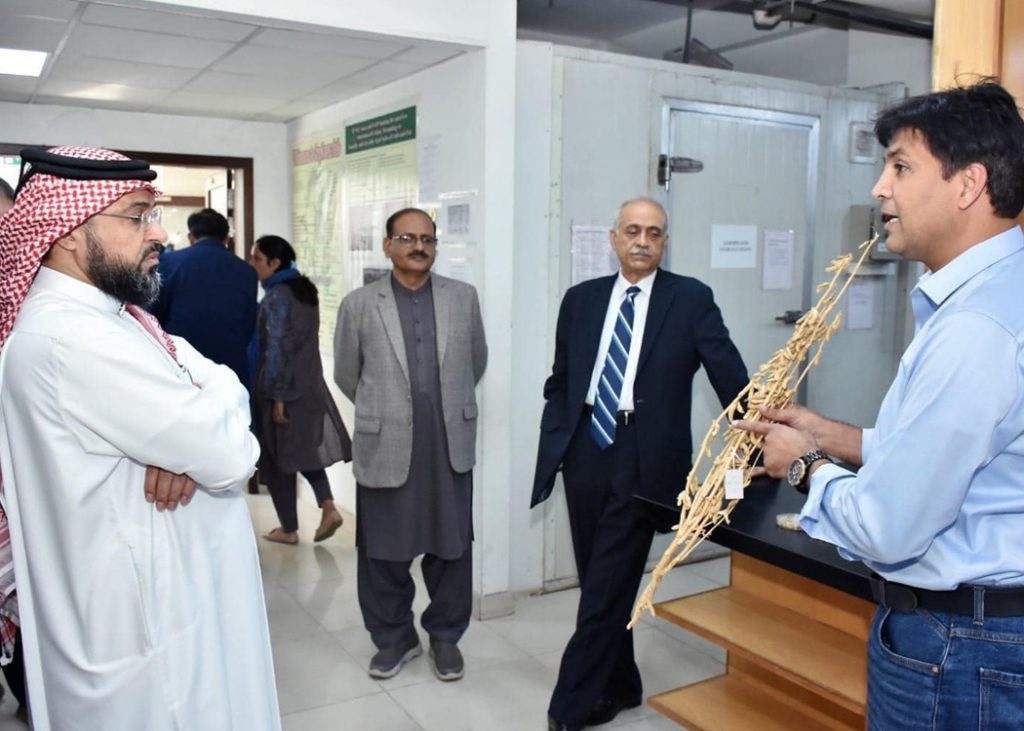
He also expressed IOFS’s commitment to providing expertise to member states on various aspects of sustainable agriculture, rural development, food security, environmental issues, and biotechnology.
Dr Al-Marri also mentioned the IOFS’ efforts to address problems related to desertification, deforestation, erosion, and salinity, while managing financial and agricultural resources to enhance food security.
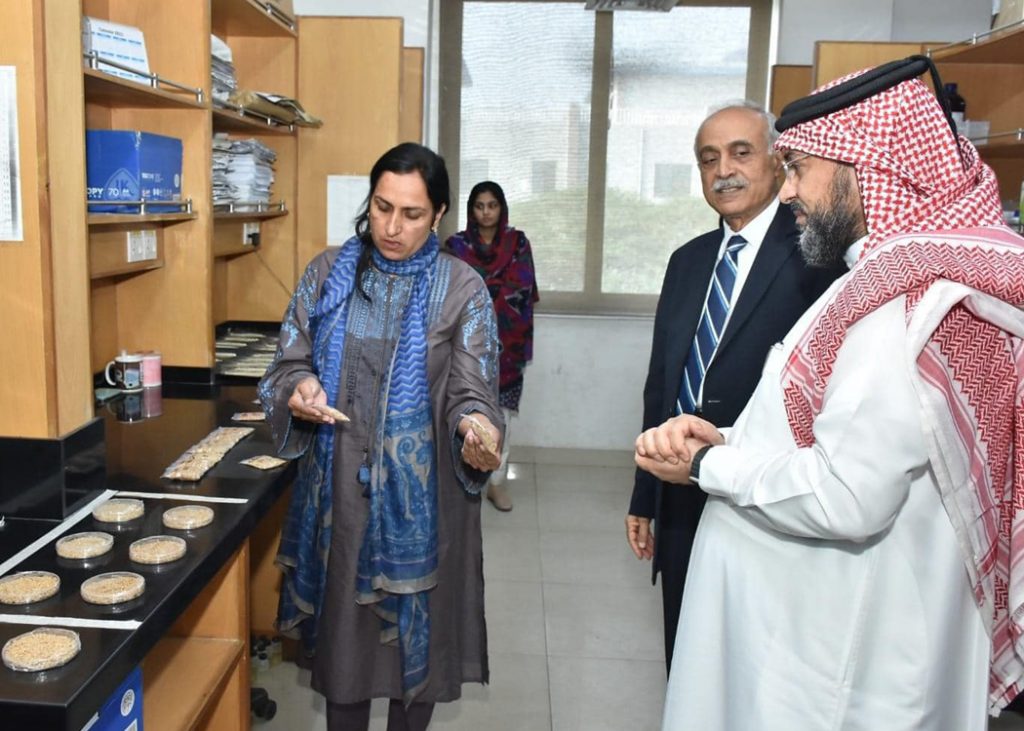
UAF VC Prof Dr Iqrar Ahmad Khan, in his response, shared that the varsity had developed high-yielding varieties of crops such as soybeans, wheat, sugarcane, and maize, which are expected to significantly boost production.
He stressed the need to increase the cultivation of oilseeds to reduce Pakistan’s annual edible oil imports, which currently amount to $4 billion.
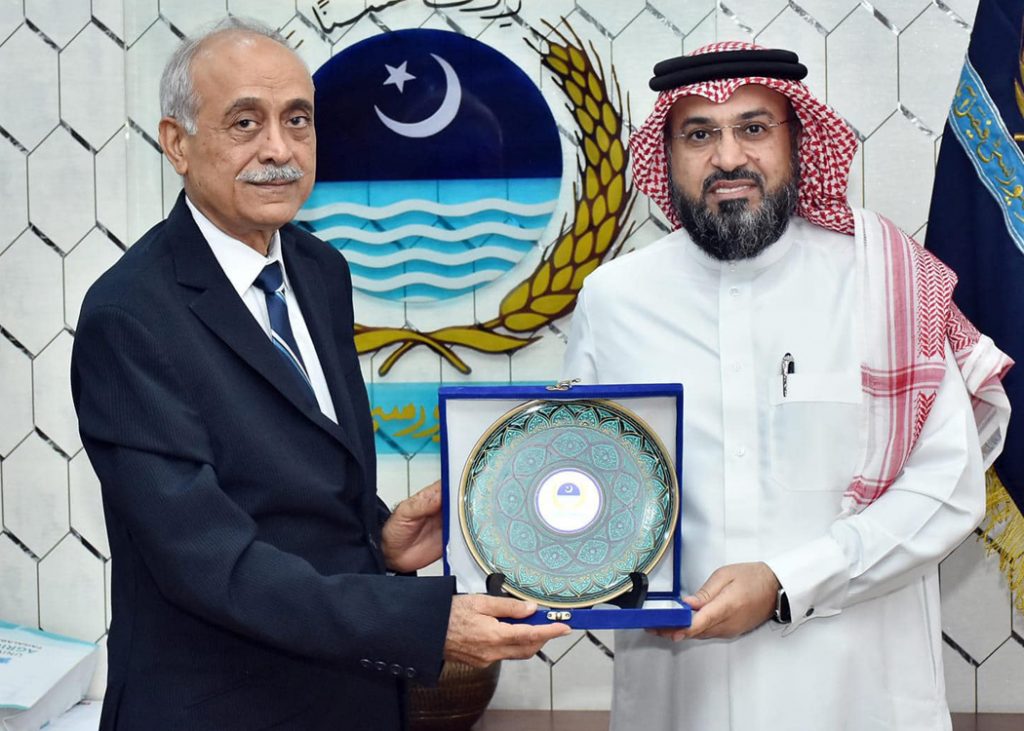
Prof Khan also highlighted the challenges posed by shifting weather patterns, including shifting monsoons, delayed winters, and intense heat waves, affecting agriculture’s productivity and increasing the prevalence of new diseases. He underscored the importance of adopting the latest agricultural technologies to increase per-acre productivity.
Dr. Zulfiqar Ali, focusing on the population of 1.9 billion people in OIC countries, pointed out that food net imports have reached $65 billion. He recalled the establishment of a specialised food security entity within the OIC during the 7th session of the World Islamic Economic Forum in Astana, Kazakhstan, on June 8, 2011. He also mentioned a forthcoming delegation visit to witness hybrid wheat seed technology at UAF.
The meeting was attended by several key figures, including Pro-Vice Chancellor/Dean Agriculture Prof Dr Muhammad Sarwar Khan, Deans Prof Dr Ijaz Bhatti, Prof Dr Rana Azam, Dr Khalid Mushtaq, Dr Qamar Bilal, and many others, who also had the opportunity to visit the university’s labs.



